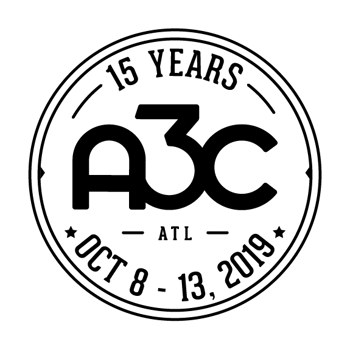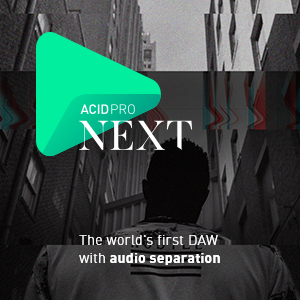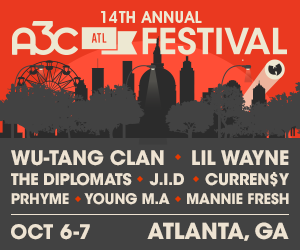One disctinct thing about hip hop is that it goes beyond music, it's genuinely a culture. Most folks would state that while rap is the music, hip hop is the phrase that describes the entire culture that goes into the community. When your genre is also a culture, you see a lot of trends. Trends that seep into overall pop culture.
Some of these trends are musical based: certain style beats, cadences and phrases. These trends are pretty harmless, however, there's other trends that exists in hip hop culture that can be a bit more "harmful".
And those are business trends and habits that seem to repeat themselves over and over -- despite at times, being completely ineffective. These poor business habits that pervade our industry can stunt artistic growth, frustrate artists, and even bankrupt and ruin careers.
Here are 5 Hip Hop Business Trends that must go, today.
1. Pay For Post Blogs & Pay For Play Gigs
There exists a really strong habit in hip hop, and only hip hop, where artists pay to have their work "posted" on certain blogs. Typically an artist will shell out anywhere from $200 to $1500 to get their work posted on a series of websites. While at face value, it sounds like it could be beneficial -- it's actually really bad for both artists and for the industry as a whole.
Let's be clear here - your work really isn't being covered in these paid post. Beacuse an article really isn't being written about you. Nine times out of ten, it's being posted on a random URL, it's non-SEO optimized, and not promoted on the outlets social media. Worst of all, it's not a story. It's typically just an artist's soundcloud embed and a copy and paste of their bio. No conversation or deeper meaning.
This really does nothing for your career aside from bragging rights, and something to put on your EPK. Now, if this outlet was sharing your work on a main page of the website, sharing it on social media, and actually did an interview or genuine write-up, it wouldn't be as bad. But the majority of outlets take on any artist who has a few bucks, and throw their links on a webpage.
This usually isn't the outlets fault. Most of the time it's a rogue freelancer or writer, who has access to the blog, and wants to make quick cash. Which explains why it's never on a homepage or promoted on social media.
Your PR needs to tell a story, and get shared by the outlet on social media. Period. In a culture where you can pay a blogger to post a soundcloud link, it means you can get posted places, but there's no story. There's no conversation about you as an artist. There's no mention of who you are and why people should care.
And if people don't have a reason to care: they simply won't.
All press coverage needs to include some form of narrative about you, your art, and your latest work. A bio and a link, even if it was on the homepage, is simply not compelling.
Most importantly, this stuff is ruining the culture. I'm not going to mention the names of the outlets that allow this -- but let's say a huge iconic hip hop blog let's anyone post there if they have the cash. Then, eventually, having your name in that blog is no longer special -- because if anyone has $200 and a soundcloud, they have a platform. It degrades journalism, and it makes press coverage less special. Because now that iconic music blog isn't as important anymore, because it's for everybody.
Instead, invest in a PR campaign, so you can have the right publicist introducing your work to their known connections. You shouldn't have to pay for posts, maybe pay for online ads, or maybe pay for a publicist but never pay to have your work reviewed. How good would it feel to have people genuinely want to write for you?
The brother of the pay-for-post is the pay-for-play gig. It really stuns me as both of these are really only found in hip hop. You have a lot of pay-for-play in the Los Angeles area, but other than that, you mainly see pay-for-play gigs surrounding hip hop showcases.
So, a promoter approaches you, and for $750 you can open up for T-Pain (just an example), you'll have the chance to perform in front of thousands of people! So you pay $750 and what do you usually find out? You're one of 5 open acts, and it's a good 2 hours before the set.
So, the question is: If you and five other dudes opened up for T-Pain, did you really open up for T-Pain?
And look, I know a lot of local small showcases/networking events that ask artists to submit a fee to be considered, and that small fee goes towards venue rental. I'm cool with this -- support your local scene. But how crazy is it to be charged to perform YOUR art? Most of the time, this has nothing to do with the artist you're opening for. It's never the artist out there asking for local groups to pay up. It's generally a local promoter or organization who's "hosting" the event that is taking money from artist.
But, honestly -- it's not that hard to open up for major artists. You simply need a bad-ass EPK, and submit it to the venue, or even the artist's team. And guess what, you get paid. Which is how it should be.
Bottom line here: Don't pay others, unless it's for legitimate business services. Never pay to have your work showcased. That's your art. Protect it.
I'm going to say this in big bolded letters, because if you don't get anything out of this article, please take away this:
"In an industry where an artist makes 0.00025 a PENNY per stream, don't let a shady promoter, blog or promo team fuck up your money and degrade your art."

2. Shooting a Pricey Visual ASAP
During my time with distributors, labels and management teams -- here's something I only really see in hip hop. Rappers like to think that step number two, in their career, is go shoot a music video. It's like they leave the studio, and before even distributing it or mastering it, they want to shoot a video for it.
And look, visuals are very important -- but visuals are tools to keep momentum going. It's not something cool to just throw out there, it's a strategic marketing tool. If you have the budget, I'm all for it -- but I see artists dropping thousands on a video, but the track isn't mastered. I see them drop a hefty sum on the video, then there's no social media marketing budget left, or press budget left. So the video doesn't go anywhere.
Here's a piece of info to hold onto and cherish:
Most major artists don't even release videos right away!
Major labels release a single, and if it's doing well -- the label will plan a video, and release it when sales or buzz starts to decline. A good example of this was Drake's Hotline Bling. Just about when radio play was dwindling, they hit us with a visual, and then people were talking again and it stayed in the charts a few more months.
Sure Drake is a major artist example, but this is true across the board. From big indie labels to large major labels, most artists only drop a video to reintroduce a track when it starts to dwindle. Why? Because they don't want to waste money. They don't want to drop money on a track that hasn't been tested in the field yet. They-- major labels --don't want to spend money on a video until they know it's a hit.
And labels got money!
So what makes you, with a limited budget, think you should throw all your cash at a visual, for a song that hasn't been tested yet?
Are there exceptions? Of course there are exceptions. It may be a damn good video, and you may have a lot of money -- in that case, great! But if you throw all your money at a video, and there's no marketing budget left -- maybe you should have spent that amount on marketing/PR. Then made a video later to ignite the fire when things start dying down.
A visual is a great tool! But a visual doesn't have to be a full-featured music video. It can be a :30 second clip for Twitter and Instagram. A visual can be you in the studio just doing the chorus -- and then linking folks to your Spotify page. You don't have to hit them with a full-fledged music video.
Release your single -- do fun, free or cheap visuals. Images, simple video clips -- and if you're getting love, announce a video shoot to keep the love going. Don't gamble your money like that.

3. Getting a Manager Before You Have Something to Manage
(and that manager is your boy from growing up).
Okay, all the disclaimers first:
There are plenty of artists who are managed by their friends or family, and have been successful: Drake, Wiz, Chance, Weeknd. It's huge in hip hop culture to support those who support you. Sometimes this works, but it only works, when that manager does their homework. They go and learn about the details, because the music industry is very nuanced. You can be a business person and be clueless about the music business. It's extremely detailed. I've seen former CEO's of major corporations try to start labels and fail because they threw money at things, without understanding the nuts and bolts.
If your boy wants to manage you, they need to learn the specifics. They need to take the time and learn about contracts, distribution, copyrights, roll-out plans, sample clearing. Or, they need to be wise enough to bring new people on the team that do know some of those specfiics. Much respect and love to all of the folks who are new managers and take the time to connect with other managers, read articles, take courses -- keep doing your thing. You have to start somewhere. Just ensure your manager is constantly evolving. I've been blessed to work with many young new managers, whether it was just to hop on a call every now and then, or collaborate on a marketing plan.
Don't let someone who thinks they know everything run your business, art and livelihood. They need to be willing to grow.
Mainly, why I'm always iffy about your friends being your manager, is that you need a manager to tell you when you're screwing up. You need a manager to tell you when you're wrong and be firm about it. I've seen a lot of artists see success -- and then go down dangerous paths but no one spoke up. They didn't speak up because if the team spoke up, then the team isn't on the jet anymore. If the team spoke up, then the team isn't on the tour bus anymore.
Surround yourself with people that know more than you do. This includes your team. This definetly includes your team.
But remember this, too:
Before you need a manager, you need something to manage.
If "step two" is shooting a music video, then a lot of artists think step number three is hiring a manager. Artists feel as if they drop a single and then YEP! I need a management team. But, slow down, you need something to manage first! Before you have a manager, you need a brand of some sort, as well as a good selection of music already made. You may need guidance! Maybe a consultation or a launch package, which I offer on my website.
But you might not be ready for management quite yet.
Here's why it's important: If you spend some time on your own -- understanding PR, understanding marketing, understanding the recording process -- when you do get a manager, then you understand what it takes. I often say that an artist is the CEO of their own music. Would a CEO ever just let a manager or marketing director handle something without being involved? At the very least, they know what those entities do. So why shouldn't you as an artist?
While you may not be the one writing press releases, booking shows, or dealing with contracts -- you should still understand what goes into it, so you can keep better tabs on your team.

4. Spam, Spam, Spam.
Spam is bad for all genres of music, but it's pretty bad in hip hop culture. I've talked about this time and time again, in plenty of articles. I'm not going to turn this into another article about how to pitch your music properly, I've already done that a few timesin this column. However, here's the marketing tactics we need to drop:
- Copy and paste, mass emails promoting your music.
- Spamming writers and fan mentions.
- Auto-DMs.
- Sending the same tweet out to dozens of other people.
- Hijacking Twitter discussions or Instagram comments to share your link.
First, this is uneffective, but secondly, it's unprofessional. The general rule and belief in the indsutry is simple: If you carry yourself professionally, you'll be taken more seriously. That's what this whole column is about. This whole series of articles is the simple belief that if you just write quality pitches, get your publishing right, have good materials -- you're automatically ahead of the game. You're automatically going to stand out.
Reaching out to someone and saying, "Hey I read the piece you wrote on Chance The Rapper, and I wanted to pass my work along to you as well. I'm also including my EPK below", is 10 times more effective than, "New music: http://soundcloud.com/link".
We need to take the time and build relationships with fans, writers and media. This way they know you and they want to write a story about who you are and what you stand for. Spamming someone with a link does nothing except give hip hop marketing a bad name. This goes back to the hustle days when artists would sell tapes out their trunk. That's true passion! However, in today's digital age, we need to take that passon and refine it. We need to tweak it so that's it fits the marketing parameters that exist in social media and internet marketing.

5. Lack of Support in the Industry
There's always been this "us vs. them" mentality in the music industry. Artists want to sign "a deal" without realizing that a deal can mean dozens of things, some not beneficial at all. Some artists want to get discovered by an A&R at a club, but it doesn't really work like that anymore.
We put our eggs into this basket that someone else is going to come and save us from "rising talent" and transform us into a superstar. But, hey.. you can do a lot right here, right now. It just takes work, and support. Sure, a label can be good for you, but there's work that you can do. Don't wait to be "discovered" that's a plan to fail, just work, get heard and connnect with fans.
There's enough artists in the world, in the country, in your region -- that moves can be made without the need for a label swooping in and "saving you". Again, a label -- yeah, it can be helpful, but why wait for that?
There was this collective I worked with in California -- it was a group of radio DJs, producers, blog, writers, and managers. They all shared a newsletter and a few private Facebook groups, and they had in-person meetings too every few months. Whenever someone in their "circle" had a release, and the team liked it. The DJs would spin it, the blogs would cover it, the managers would look into co-performing at shows. It was a beautiful thing. Still is a beautiful thing.
It was like 30 or so "core" folks, put the network expanded much beyond that. The radio DJs also had significant reach beyond their region, same with the blogs. So, thing popped off.
Can you imagine if more folks came together like this? Especially for towns and regions that don't have what they consider a "booming" scene. If 30 or so of the "influencers" just came together and mapped out a plan to get their music reach? Or, even if every artist simply supported music they enjoyed. If folks retweeted, shared and talked about hot local artists.
If other artists went to more shows, if fans went and bought merch and made purchases. Little things like this go a long way. Support others, and they'll support you.
Let's take control.
We don't have to operate in an industry where the industry is so heavily controlled by outside influencers. Yes there are great labels, amazing promoters, reputable industry outlets that exist. I like to think that I'm one, I like to think that the dozens of folks I work with are, too. However, don't think that they are in complete control of your art. You are. Make a movement, support others and carry yourself well.
Act like you've been here.
Further Reading:
EPK: The Ultimate Guide to Looking Polished
The Details: Why Your Music Isn't Being Taken Seriously
Why Your Song Pitch Isn't Getting Any Replies




